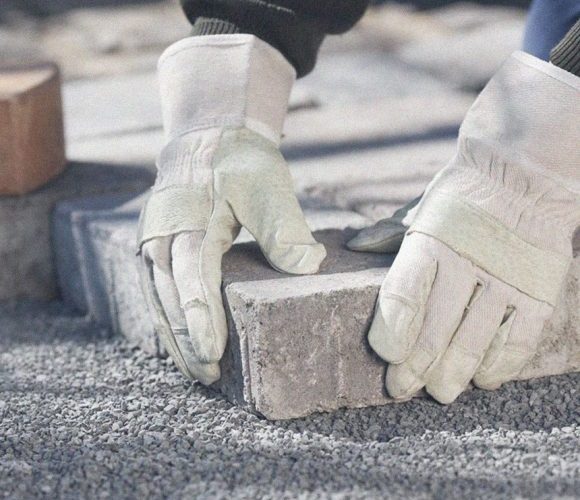
Posted 13 Sep 2020
Post By : Neville
Called to be a cup bearer
Nehemiah was among the Hebrews who remained in the Persian Empire following the seventy years of Babylonian Captivity. When Cyrus allowed the Israelites to return to Jerusalem, along with all other captive peoples to their homelands, not all of them went back. Many remained in Persia, and some even came to occupy positions of importance in the government. Nehemiah was one such individual. Nehemiah was the Kings cupbearer.
The function of a cupbearer was to taste (either for quality or for poison or for both), carry, and serve wine to his master. In a position like that of Nehemiah, a cupbearer for royalty, was not just a personal servant but also a trusted advisor. Thus, it was an office of great responsibility, power, and honour in the Persian Empire.
On one occasion, Nehemiah needed to ask a favour of the King, and before doing so, he said a quick prayer to God for divine favour in his query. “O Lord, I pray, please let Your ear be attentive to the prayer of Your servant, and to the prayer of Your servants who desire to fear Your name; and let Your servant prosper this day, I pray, and grant him mercy in the sight of this man.
He then explained why he made this entreaty of the Lord. “For I was the king’s cupbearer” (Nehemiah 1:11). The very reason why Nehemiah was making his request of the Lord was that he was greatly troubled. “Word had come back from Judah through a man named Hanani, who may have been one of Nehemiah’s brothers, that the situation was bad in Jerusalem”. Some 75 years earlier Zerubbabel and Jeshua took the first group of released captives back and amid much opposition rebuilt the temple. Many years later, just a few years before Nehemiah’s time, Ezra took a second group back to restore the worship.
However, Nehemiah learned that the survivors in Judah were in great distress and reproach. The wall was broken down, and the gates were burned with fire. Therefore, he determined to ask King Artaxerxes if he could take a leave of absence from his job and return to Jerusalem with the aim of rebuilding the walls and the gates of Jerusalem. His foremost desire was to serve the Lord by helping God’s people.
As Christians, we have many opportunities to serve the Lord too, regardless of our station in life, our secular job, or our peculiar abilities.
Of course, God does not necessarily require us to leave all our other responsibilities to do so, as Nehemiah chose to leave his job in the palace. However, we can learn many important lessons and greatly benefit from studying the life of this man who went from being a cupbearer for the King to being a cupbearer for the Lord.
What did Nehemiah do?
1. Nehemiah was concerned
Notice Nehemiah’s very first reaction upon hearing the bad news about Jerusalem. “So it was, when I heard these words, that I sat down and wept, and mourned for many days; I was fasting and praying before the God of heaven” (Nehemiah 1:4). Nehemiah could have thought, “I chose not to return to Judah but remain here in Persia, and I have a very responsible job serving the King, so what is going on in Jerusalem really does not concern me,” and simply ignored what he has been told. However, he was so concerned about the condition of his fellow Hebrews “back home” that he wept, mourned, and fasted for many days.
Nehemiah was concerned about the physical state of his countrymen in Judah. We need to be concerned about the spiritual state of people, especially those who are lost in sin. Paul certainly was. “Brethren, my heart’s desire and prayer to God for Israel is that they may be saved. For I bear them witness that they have a zeal for God, but not according to knowledge. For they being ignorant of God’s righteousness, and seeking to establish their own righteousness, have not submitted to the righteousness of God” (Romans 10:1-3).
2. Nehemiah made the necessary preparations
As soon as Nehemiah understood the great need, he evidently decided that he wanted to do something about it. But what was the very first thing that he did?
He prayed. “And I said: ‘I pray, Lord God of heaven, O great and awesome God, You who keep Your covenant and mercy with those who love You and observe Your commandments, please let Your ear be attentive and Your eyes open, that You may hear the prayer of Your servant which I pray before You now, day and night, for the children of Israel Your servants, and confess the sins of the children of Israel which we have sinned against You. Both my father’s house and I have sinned’ (Nehemiah 1:5-6).
"Before we ever undertake any endeavour for the Lord, we should always ask in prayer, with repentance heart, God’s grace and blessings".
Yahushua said to his diciples, “And whatever things you ask in prayer, believing, you will receive” (Matthew 21:22).
As you notice, Nehemiah did not just pray. Nor did he merely sit around, wringing his hands and saying, “Woe is me.” Nehemiah had the ability to do something about it, so he took personal responsibility to do what he could. Even as he came before the King to make his request, he was still praying in his spirit. “Then the king said to me, ‘What do you request?’ So, I prayed to the God of heaven. And I said to the king, if it pleases the king, and if your servant has found favour in your sight, I ask that you send me to Judah, to the city of my fathers’ tombs, that I may rebuild it’” (Nehemiah 2:4-5). Wow, so profound, so humble, and so desperate to accomplish his desire, that is to re-establish the Kingdom of God on the earth through his people.
Once Nehemiah decided that he needed to do something, he got busy. We may not individually be able to do everything that needs to be done, but there is almost always something that each one of us can do. “Whatever your hand finds to do, do it with your might…” (Ecclesiastes 9:10).
After receiving the King’s permission and assistance, he went directly to Jerusalem and, when he had settled in, immediately set to work to determine exactly what needed to be done. “Then I arose in the night, I and a few men with me; I told no one what my God had put in my heart to do at Jerusalem; nor was there any animal with me, except the one on which I rode. And I went out by night through the Valley Gate to the Serpent Well and the Refuse Gate and viewed the walls of Jerusalem which were broken down and its gates which were burned with fire” (Nehemiah 2:12-13).
3. Nehemiah understood that his work needed to be accomplished as quickly as possible.
We also need to realize that whatever work the Lord has for us to do in this life, we have only a limited time to accomplish, so we must get busy.
4. Nehemiah knew that he could not do it all by himself.
One other thing that Nehemiah did in his preparation was to enlist the cooperation of others. He called the priests, nobles, officials, and others to explain his plan (Nehemiah 2:16-18). Their response was, “Let us rise up and build.” Nehemiah knew that he could not do it all by himself. He needed help. As a result of his recruitment we read, “Then Eliashib the high priest rose up with his brethren the priests and built the Sheep Gate; they consecrated it and hung its doors. They built as far as the Tower of the Hundred, and consecrated it, then as far as the Tower of Hananel. Next to Eliashib the men of Jericho built. And next to them Zaccur the son of Imri built” (Nehemiah 3:1-2). Chapter three goes on to identify all the people who worked on the wall from gate to gate to gate and ends by telling us, “And between the upper room at the corner, as far as the Sheep Gate, the goldsmiths and the merchants made repairs” (v. 32). This takes us right back to the place of Eliashib and the priests.
In order for the Lord’s cause to be promoted most efficiently, members of each local congregation must learn to cooperate and work together. “From whom the whole body, joined and knit together by what every joint supplies, according to the effective working by which every part does its share, causes growth of the body for the edifying of itself in love” (Ephesians 4:16).
5. Nehemiah stood firm against opposition
Not everyone in the region was happy with Nehemiah’s work, especially Sanballat the Horonite, Tobiah the Ammonite, and Geshem the Arabian. They tried several methods in their attempt to stop the efforts.
- First, they used mocking and ridicule. “Now Tobiah the Ammonite was beside him, and he said, ‘Whatever they build, if even a fox goes up on it, he will break down their stone wall’” (Nehemiah 4:3). Notice Nehemiah’s response—he again went to God in prayer. “Hear, O our God, for we are despised; turn their reproach on their own heads and give them as plunder to a land of captivity!” (v. 4). And what did the people do? “So we built the wall, and the entire wall was joined together up to half its height, for the people had a mind to work” (v. 6). God’s people today can expect ridicule too. “Knowing this first: that scoffers will come in the last days, walking according to their own lusts, and saying, ‘Where is the promise of His coming? For since the fathers fell asleep, all things continue as they were from the beginning of creation’ (2 Peter 3:3-4). The best way to deal with scoffers is simply to pray and just keep on working.
- Second, the enemies attempted to stop the work by threats of force. “Now it happened, when Sanballat, Tobiah, the Arabs, the Ammonites, and the Ashdodites heard that the walls of Jerusalem were being restored and the gaps were beginning to be closed, that they became very angry, and all of them conspired together to come and attack Jerusalem and create confusion. Nevertheless, we made our prayer to our God, and because of them we set a watch against them day and night” (Nehemiah 4:7-9). To deal with this, Nehemiah prayed, then set a watch and made plans to defend the workers.
In the work of the Lord today, we usually have little to fear from threats of physical force, but we do have a spiritual enemy, and we need to be watchful and prepared as Nehemiah was. “Be sober, be vigilant; because your adversary the devil walks about like a roaring lion, seeking whom he may devour” (1 Peter 5:8).
- Third, the enemies sought to promote compromise. “Now it happened when Sanballat, Tobiah, Geshem the Arab, and the rest of our enemies heard that I had rebuilt the wall, and that there were no breaks left in it (though at that time I had not hung the doors in the gates), that Sanballat and Geshem sent to me, saying, ‘Come, let us meet together among the villages in the plain of Ono.’ But they thought to do me harm. So I sent messengers to them, saying, ‘I am doing a great work, so that I cannot come down. Why should the work cease while I leave it and go down to you?’” (Nehemiah 6:1-3). On the surface, this sounds like a reasonable request. “Let’s talk.” But Nehemiah knew that their real goal was to stop the work, so he just refused. There will always be temptations to compromise with the world, so we simply must refuse to do that.
“Adulterers and adulteresses! Do you not know that friendship with the world is enmity with God? Whoever therefore wants to be a friend of the world makes himself an enemy of God” (James 4:4).
- Fourth, the enemies used scare tactics to discourage the Jews. “Then Sanballat sent his servant to me as before, the fifth time, with an open letter in his hand. In it was written: ‘It is reported among the nations, and Geshem says, that you and the Jews plan to rebel; therefore, according to these rumours, you are rebuilding the wall, that you may be their king. And you have also appointed prophets to proclaim concerning you at Jerusalem, saying, “There is a king in Judah!” Now these matters will be reported to the king. So come, therefore, and let us consult together.’ Then I sent to him, saying, ‘No such things as you say are being done, but you invent them in your own heart.’ For they all were trying to make us afraid, saying, ‘Their hands will be weakened in the work, and it will not be done.’ Now therefore, O God, strengthen my hands” (Nehemiah 6:5-9). Basically, Nehemiah ignored them. Yes, he answered their ridiculous charges, but rather than letting himself become distracted and deterred, he just went on—and kept on praying, too. Thus, when enemies try to scare us, we should do what Jesus tells us in. Matthew 15:14. “Let them alone. They are blind leaders of the blind. And if the blind leads the blind, both will fall into a ditch.”
6. Nehemiah accomplished his work
The most obvious accomplishment was that the wall was completed. “So the wall was finished on the twenty-fifth day of Elul, in fifty-two days. And it happened, when all our enemies heard of it, and all the nations around us saw these things, that they were very disheartened in their own eyes; for they perceived that this work was done by our God” (Nehemiah 6:15-16). Again, Nehemiah did not do all this work himself, but he was the kind of leader who, when he fulfilled his own personal responsibility, was able to encourage others to join in and help.
And when each one of us fulfills his or her personal responsibility and work together, we shall get things accomplished.
“Therefore, my beloved brethren, be steadfast, immovable, always abounding in the work of the Lord, knowing that your labour is not in vain in the Lord” (1 Corinthians 15:58).
- Another accomplishment was to have the law read for all the people. “Now all the people gathered together as one man in the open square that was in front of the Water Gate; and they told Ezra the scribe to bring the Book of the Law of Moses, which the Lord had commanded Israel. So Ezra the priest brought the Law before the assembly of men and women and all who could hear with understanding on the first day of the seventh month. Then he read from it in the open square that was in front of the Water Gate from morning until midday, before the men and women and those who could understand; and the ears of all the people were attentive to the Book of the Law….So they read distinctly from the book, in the Law of God; and they gave the sense, and helped them to understand the reading” (Nehemiah 8:1-8). While Ezra was the spiritual leader, as Governor Nehemiah was responsible to see to it that the spiritual needs of the people were met.
Today, all of us can read the word of God for ourselves, and we need to be doing so, like the Bereans who searched the Scriptures daily (Acts 17:11). Then we need to be teaching it to others also (2 Timothy 2:2).
- Still another accomplishment was to bring the people to confess their sins. “Now on the twenty-fourth day of this month the children of Israel were assembled with fasting, in sackcloth, and with dust on their heads. Then those of Israelite lineage separated themselves from all foreigners; and they stood and confessed their sins and the iniquities of their fathers” ( Nehemiah 9:1-2 ). While Nehemiah’s name is not mentioned specifically in this context, the event took place during his time as governor, and such a man as Nehemiah must have encouraged it. Of course, God has not set up any kind of confessional booth, but when we sin, we need to confess our sins to the Lord and seek His forgiveness. (I John 1:9).
- One final accomplishment was to end the practice of intermarriage with pagans which brought impurity among the Israelites. “In those days I also saw Jews who had married women of Ashdod, Ammon, and Moab. And half of their children spoke the language of Ashdod, and could not speak the language of Judah, but spoke according to the language of one or the other people. So I contended with them and cursed them, struck some of them and pulled out their hair, and made them swear by God, saying, ‘You shall not give your daughters as wives to their sons, nor take their daughters for your sons or yourselves’ (Nehemiah 13:23-25). As Nehemiah went on to say, God had forbidden this practice to Israel, and when they failed to obey God’s will, as Solomon had done, the result was sin and apostasy. Today, it is so important for us as Christians to make sure that we keep ourselves pure from the evil of this world. “I beseech you therefore, brethren, by the mercies of God, that you present your bodies a living sacrifice, holy, acceptable to God, which is your reasonable service. And do not be conformed to this world, but be transformed by the renewing of your mind, that you may prove what is that good and acceptable and perfect will of God” (Romans 12:1-2).
Conclusion
Just as Nehemiah and the Israelites were trying to build up the wall of Jerusalem and restore the order of God’s law, so faithful Christians in all generations have sought to build up the church and return to God’s pattern as revealed in the New Testament. And we need good men like Nehemiah to lead us in striving to accomplish our work. However, elders, preachers, Bible class teachers, and other leaders cannot do it all by themselves. All Christians need to recognize their own personal responsibilities and labour together to make sure that the Lord’s will is done.




